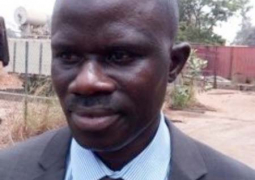It begins with a bite, a painless bite.
Almost certainly, the person who has been bitten hardly stirs from sleep. And for the next week or two, there’s no overt sign that something in the body has just gone horribly wrong.
We live on a malarious planet. It may not seem that way from the vantage point of a wealthy country, where malaria is sometimes thought of, if it is thought of at all, as a problem that has mostly been solved, like smallpox or polio.
In truth, malaria now affects more people than ever before. It’s endemic to 106 nations, threatening half the world’s population.
In recent years, the parasite has grown so entrenched and has developed resistance to so many drugs that the most potent strains can scarcely be controlled. This year malaria will strike up to a half billion people.
At least a million will die, most of them under age five, the vast majority living in Africa. That’s more than twice the annual toll a generation ago.
The outcry over this epidemic, until recently, has been muted. Malaria is a plague of the poor, easy to overlook. The most unfortunate fact about malaria, some researchers believe, is that prosperous nations got rid of it.
In the meantime, several distinctly unprosperous regions have reached the brink of total malarial collapse, virtually ruled by swarms of buzzing, flying syringes.
Only in the past few years has malaria captured the full attention of aid agencies and donors. The World Health Organisation has made malaria reduction a chief priority. Bill Gates, who has called malaria “the worst thing on the planet,” has donated hundreds of millions of dollars to the effort through the Bill and Melinda Gates Foundation.
Funds devoted to malaria have doubled since 2003. The idea is to disable the disease by combining virtually every known malaria-fighting technique, from the ancient (Chinese herbal medicines) to the old (bed nets) to the ultramodern (multidrug cocktails).
At the same time, malaria researchers are pursuing a long-sought, elusive goal: a vaccine that would curb the disease for good.
Guest editorial
“Rainy season should fill us with joy, not malaria parasites.”
T.K. Naliaka




